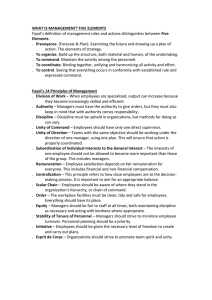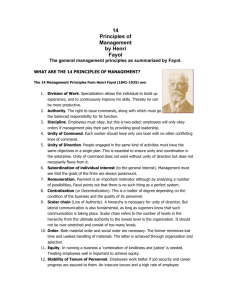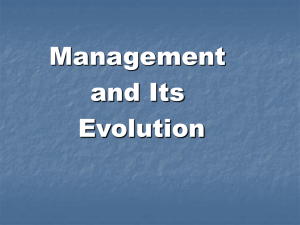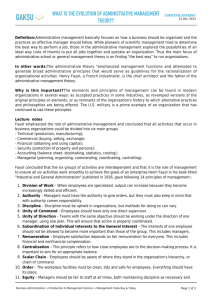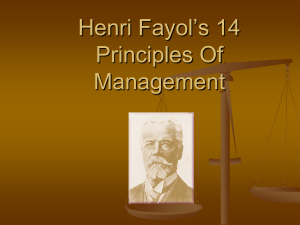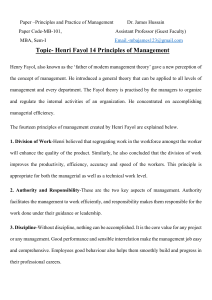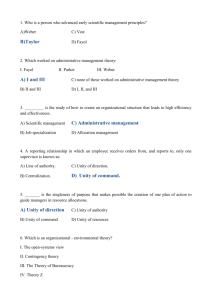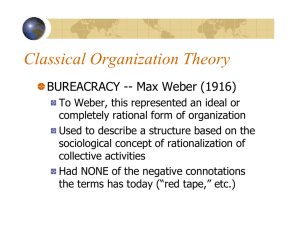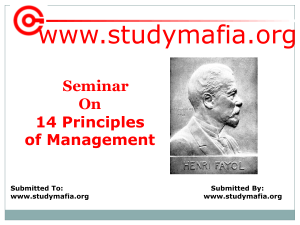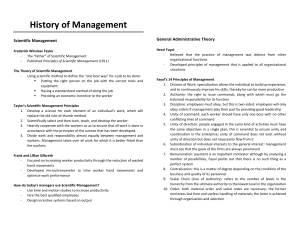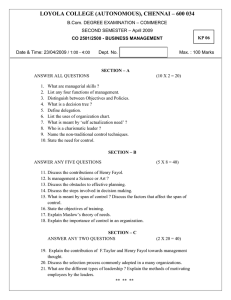Henri Fayol Theory Principles of Management" have been a
advertisement
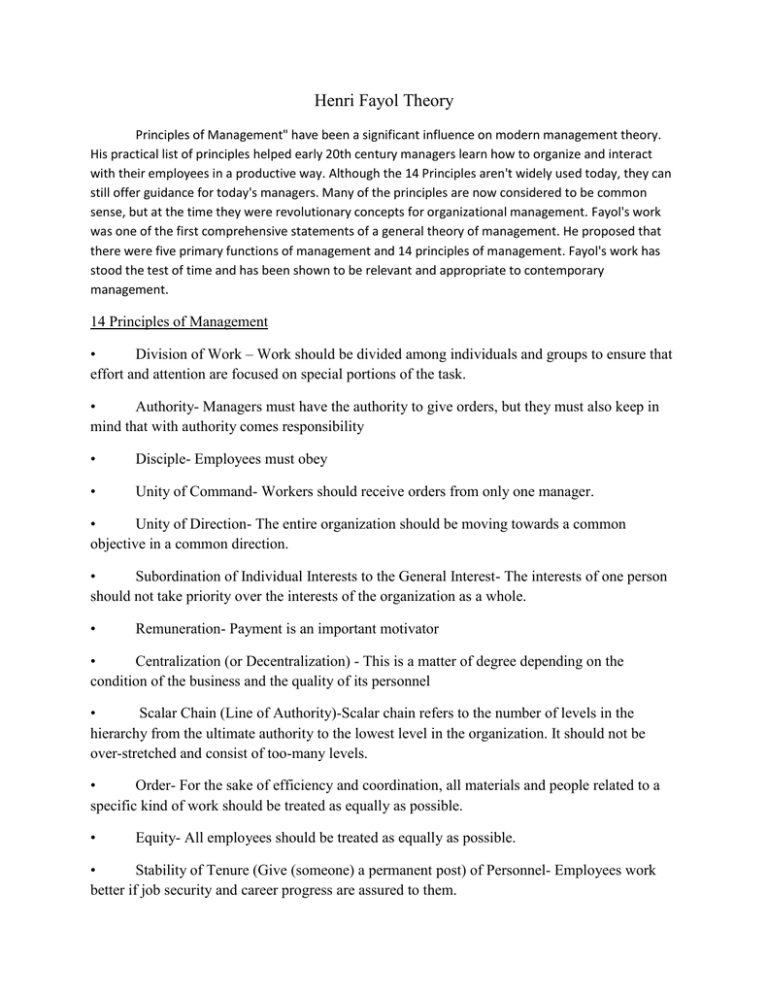
Henri Fayol Theory Principles of Management" have been a significant influence on modern management theory. His practical list of principles helped early 20th century managers learn how to organize and interact with their employees in a productive way. Although the 14 Principles aren't widely used today, they can still offer guidance for today's managers. Many of the principles are now considered to be common sense, but at the time they were revolutionary concepts for organizational management. Fayol's work was one of the first comprehensive statements of a general theory of management. He proposed that there were five primary functions of management and 14 principles of management. Fayol's work has stood the test of time and has been shown to be relevant and appropriate to contemporary management. 14 Principles of Management • Division of Work – Work should be divided among individuals and groups to ensure that effort and attention are focused on special portions of the task. • Authority- Managers must have the authority to give orders, but they must also keep in mind that with authority comes responsibility • Disciple- Employees must obey • Unity of Command- Workers should receive orders from only one manager. • Unity of Direction- The entire organization should be moving towards a common objective in a common direction. • Subordination of Individual Interests to the General Interest- The interests of one person should not take priority over the interests of the organization as a whole. • Remuneration- Payment is an important motivator • Centralization (or Decentralization) - This is a matter of degree depending on the condition of the business and the quality of its personnel • Scalar Chain (Line of Authority)-Scalar chain refers to the number of levels in the hierarchy from the ultimate authority to the lowest level in the organization. It should not be over-stretched and consist of too-many levels. • Order- For the sake of efficiency and coordination, all materials and people related to a specific kind of work should be treated as equally as possible. • Equity- All employees should be treated as equally as possible. • Stability of Tenure (Give (someone) a permanent post) of Personnel- Employees work better if job security and career progress are assured to them. • Initiative - Management should take steps to encourage workers • Espirit de Corps- Promoting team spirit will build harmony and unity within the organization 5 functions of management 1. To forecast and plan- Examining the future and drawing up a plan of action. The elements of strategy. 2. To organize- Build up the structure, both material and human, of the undertaking. 3. To command or direct- Maintain the activity among the personnel. 4. To coordinate- Binding together, unifying and harmonizing all activity and effort 5. To develop output- Seeing that everything occurs in conformity with established rule and expressed command The McDonald’s restaurant represents these principles, and functions of management in their division of work because they are guide lines that many fast food chains use to run a successful business. McDonald’s use these and can be easily seen by costumers. The Functions of management are what are used so that they can serve costumers efficiently. http://managementlearningcenter.blogspot.ca/2012/08/principle-ofmanagement-contribution-of.html#chitika_close_button http://www.mindtools.com/pages/article/henri-fayol.htm textbook
